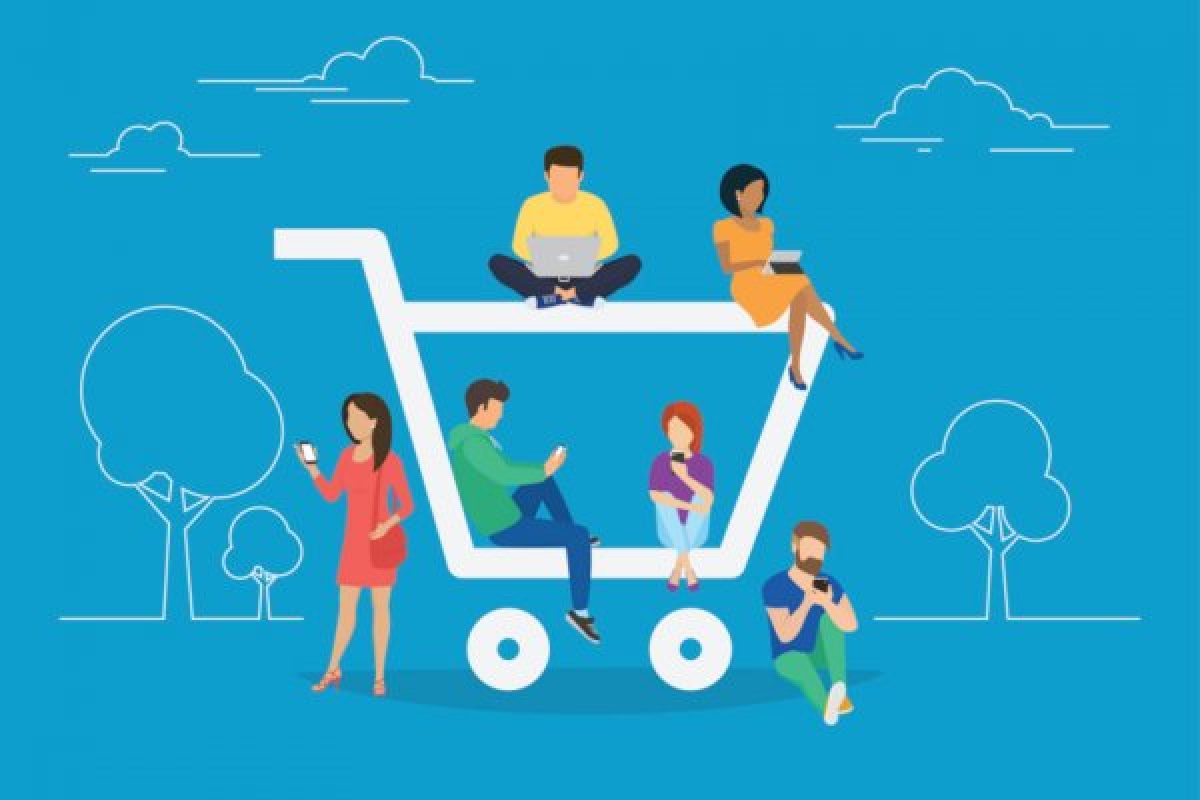There are many ways to achieve this, but one of the most effective methods for retailers is to be more human in their approach. As shopify states: ‘We are at the dawn of a new industrial age called the experience economy’ – where the success of a company depends upon the experience it can deliver to customers. It’s therefore imperative for e-commerce organisations to prioritise improving their ‘experience factor’ and developing the human touch.
What is a human e-commerce experience?
Firstly, what does it mean to provide a human e-commerce experience? Fundamentally, people do business with people – even online. To maximise business, that business must be human and relatable. Despite the rapid advancement of technology, e-tailers must remain as human as possible in their marketing and the structures that frame the entire customer experience.
In a sense, what you’re trying to replicate through the digital customer experience you offer is the experience you would get in a real-life store. E-commerce personalisation is a great way of emulating a human experience – creating personal interactions and experiences by showing content based on browsing behaviour, purchase history, demographics and psychographics. Personalisation is becoming increasingly vital for consumers: IT Pro Portal recently reported that ‘nearly 50% of consumers say they’ll spend more money with a brand that personalises their e-commerce experience.’
On a simpler level that doesn’t require customer data, you can personalise your approach by proactively engaging with shoppers using social media, live chat and call services.
The importance of communication in e-commerce
When it comes to providing a human e-commerce experience, communication is everything. Just because you’re separated from your customers by a computer screen, it doesn’t mean that excellent communication isn’t necessary. Make sure you reach out to your customers regularly and do it in a human way: talk and write like a person, not a robot. This means you should use everyday, expressive phrases; your customers will reward you with sales.
If you want to create healthy relationships with your customers, then you to need to invest in continuous communication and nurturing. This means extended engagement post-purchase, providing a personal touch that turns a first-time consumer into a repeat buyer. It’s essential to make every interaction count: in today’s world of near-infinite shopping options, consumers are more likely to turn their back on a brand after just one poor experience. Make sure your branding is strong and that your identity comes through in every communication. As Forbes reported: ‘Millennials, in particular, increasingly need to identify with your brand and message, before committing to buy.’
Communication doesn’t need to be through printed text: you can communicate through video too. Videos create a deeper connection with your audience and allow you to demonstrate your brand and products in a way that isn’t possible with still images. This connection will lead to more interactions and sales.
Train your staff to excel at customer service
To create a human e-commerce experience, you need humans behind the activity – that is, your staff. Let your customers have an idea of whom they’re talking to. Pictures of your staff with snappy bios will help them get to know your organisation, and profile shots in pop-up chat boxes will go a long way in humanising the conversation.
Your team will also need to be trained on how to engage with your customers. Multi-channel customer service is a complex task, especially when you factor in things like brand voice, ongoing development, staff protection and GDPR. Empower your staff with full knowledge of your products and services so they can supply the best information possible for your customers. Resources like a knowledge base or FAQs can be indispensable for your team.
Most importantly, there’s no point in creating a human e-commerce experience if it’s going to be a negative one. Make sure you completely satisfy your customers and that your processes are reliable, smooth and efficient. Think about your logistics: are they as slick as they can be and do your processes maximise profit for you?
Smart e-commerce entrepreneurs outsource fulfilment. They avoid the never-ending operational issues associated with in-house distribution and fulfilment, and hand the responsibility over to the experts. Healthy outsourcing partnerships save time and money and free up business owners so they can focus on what really matters: driving business expansion and coming up with new ideas on how to perfect the customer experience.
Sprint Logistics is an international logistics and mailing services company that provides tailored solutions for businesses all over the world. Our team of experts manage international fulfilment solutions, supply chain management and global warehousing for a wide variety of organisations, each with their own unique needs.
If you have any questions about delivering a superior e-commerce experience for your customers, please don’t hesitate to get in touch.




